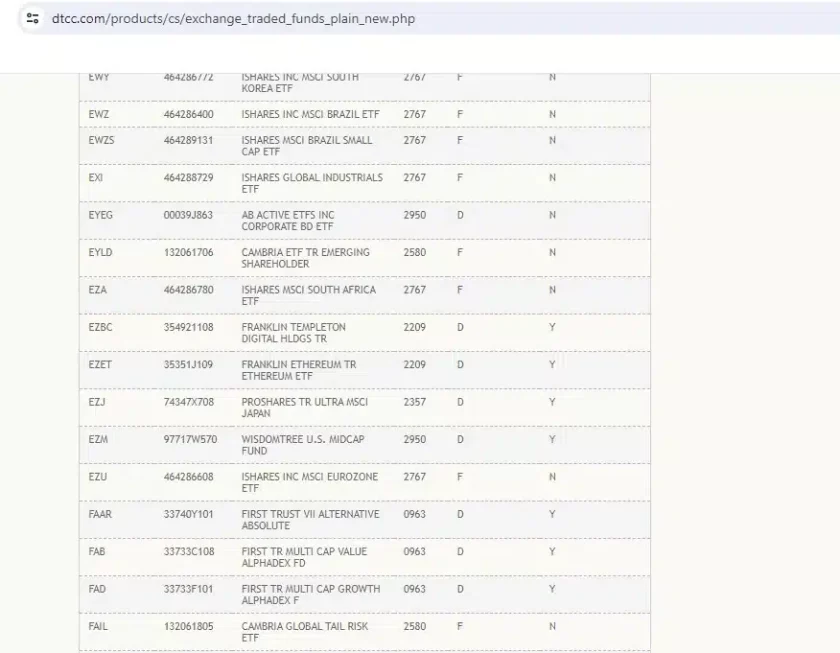Two days after approval, spot Bitcoin exchange-traded funds (ETFs) are receiving an impressive amount of inflow, according to data from BitMEX Research.
The analytics company reported a total net inflow of $532 million for spot Bitcoin ETFs, with BlackRock IBIT leading the pack at $498 million. Fidelity’s FBTC followed at $422 million, and 21 Shares’ ARKB posted a net inflow of $105 million.
However, not all funds experienced gains. Grayscale’s GBTC saw a sizeable outflow of $579 million, including a $484 million outflow on the second day alone, as reported by Bloomberg analyst James Seyffart on X.
Bitwise posts impressive second day performance
Interestingly, Bitwise was noted as the victor of the first day despite GBTC leading in terms of assets. Nonetheless, BitMEX Research suggested that GBTC might face significant outflows in the coming days, weeks, and months due to its hefty 1.5% fee.
As of the time of writing, other smaller players, including Hashdex and Valkyrie, were still waiting on precise data, while Fidelity had a solid second day, reeling in $195 million. BlackRock also reported a considerable $386 million inflow on the second day, taking its two-day total to nearly $500 million, which potentially places it in the lead.
While these numbers are undoubtedly striking, Bloomberg analyst Eric Balchunas noted that today’s actions in GBTC won’t be reflected in the flow data until Tuesday night, reminding us that these numbers should capture Thursday’s action.
As the dust settles, it will be intriguing to see how these numbers evolve and shape the narrative of spot Bitcoin ETFs.
Spot Bitcoin ETF approval sparks cutthroat competition
The U.S. Securities and Exchange Commission’s (SEC) approval of 11 spot Bitcoin ETFs this week, which included BlackRock’s iShares Bitcoin Trust and Grayscale Bitcoin Trust, has been a game-changer for the digital asset industry. This struggle has been ongoing for a decade in the race to attract investors.
One day after their approval, Bitcoin ETFs saw an impressive $4.6 billion in traded shares, marking a watershed moment in the cryptocurrency industry and pushing it closer to broader acceptance as a viable investment.
However, this landmark approval also triggered a brutal battle for market dominance, with some firms cutting their fees below the U.S. ETF industry’s standard even before the launch.
As a case in point, after its ETF started trading, Valkyrie reduced its fees twice, finally settling at 0.25%, and waived these charges for the first three months. Franklin Templeton slashed its bitcoin ETF fee to a yet-unseen low of 0.19% and waived fees entirely on the product’s first $10 billion in assets until August.
The launch of these ETFs drove the price of Bitcoin (BTC) to its highest level since December 2021, with Bitcoin last standing at $46,303, marking an increase of 0.77%.
Analysts advise caution
Investors and market participants were keenly observing the price difference between buying and selling an ETF, commonly known as bid-ask spreads. ETFs with narrower spreads are typically considered more appealing.
However, some traditional asset managers like Merrill Lynch and Vanguard have said they have no plans of allowing spot Bitcoin ETF trading, suggesting caution and reminding the crypto community that many still perceive cryptocurrencies as risky.
Despite this cautiousness, several crypto asset managers who went all in on Bitcoin ETFs recorded impressive inflows on the first day of the product’s listing. Bitwise, for instance, reported that $240 million flowed into its spot Bitcoin ETF.
Fidelity and BlackRock received $227 million and $111.7 million, respectively. Franklin Templeton and 21 Shares registered inflows of $50.1 million and $65.3 million, respectively.
Valkyrie reported an inflow of $29.44 million on its first trading day alone, celebrating what CEO Leah Wald termed “a successful trading day.”




